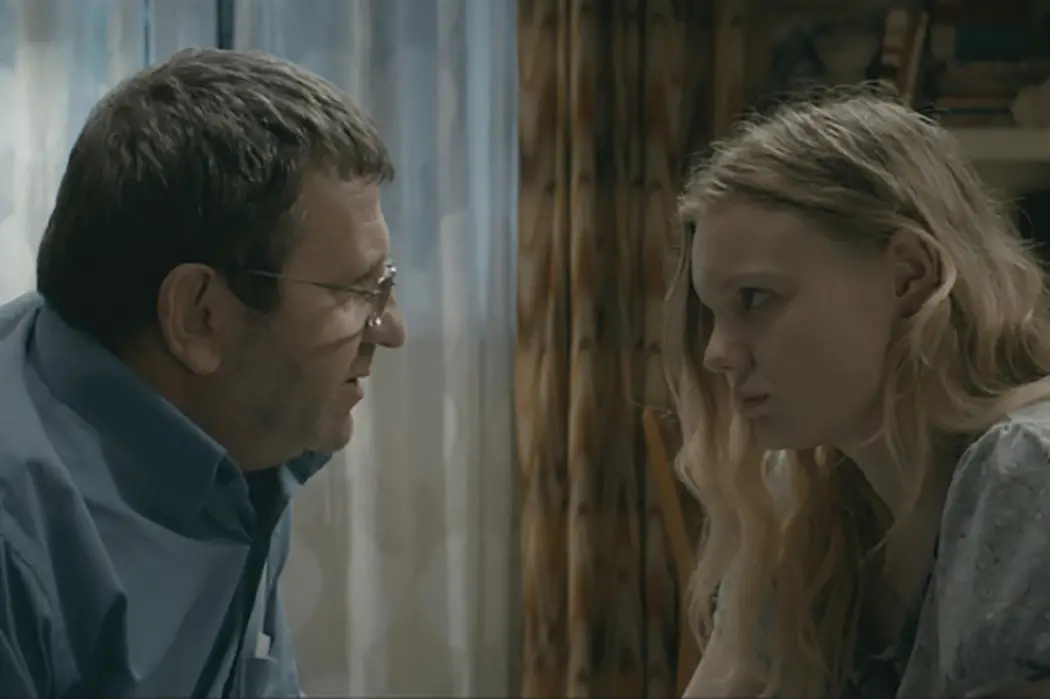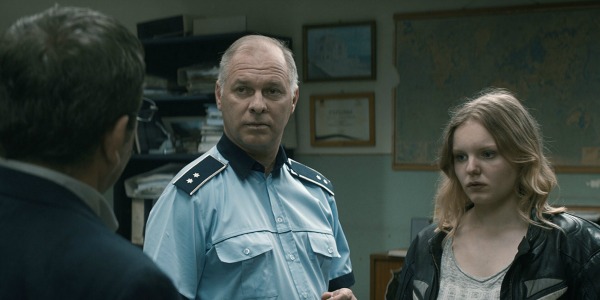GRADUATION: A Complex Morality Play

Alistair is a 25 year old writer based in Cambridge.…
The Romanian tourist board must have the hardest job in the world. A cursory glance at any travel website highlights that the nation is a hub for culture, as well as possessing some of Eastern Europe’s most picturesque landscapes. Yet, if you were to watch any of the films from the directors associated with the “Romanian New Wave”, often the first exposure many cinephiles get to the nation, you would be face-to-face with utter despair.
The image of Romania projected to international audiences via pop culture couldn’t be less glamorous if it tried – sure, other countries have social realism, but they also possess awe-inspiring blockbusters to help balance it out.
Bad for the Romanian Tourist Board, great for lovers of cinema
Director Cristian Mungiu is the most internationally celebrated Romanian filmmaker, as well as the most prominent director associated with the Romanian New Wave. Coincidentally, his films are defined by their depressing narrative attributes; whereas other filmmakers, including Cristi Puiu, balance the darkness with some jet-black observational laughs, Mungiu makes films without any shade of light, designed to shake you to your very core. After all, his most celebrated film is about an illegal abortion during Romanian communist rule, including a long close-up shot of an aborted fetus – jokes aren’t exactly his forte.
Graduation, Mungiu‘s fourth film as director, is yet another example of how he masterfully weaves an intimate character drama into an intelligent commentary on injustices in Romanian society. On the eve of an important entrance exam that will secure an international scholarship to Cambridge, Eliza (Maria-Victoria Dragus) is sexually assaulted in a building site seconds away from her school entrance gates.
Although visibly shaken and physically harmed by the accident, her father Romeo (Adrian Titieni) goes out of his way to make sure that not only can she still sit these important exams, but will be able to cheat the system and pass regardless. She’s one of the region’s brightest students – why shouldn’t she allowed to bend the rules after a time of crisis that could affect her entire future?

Of course, Mungiu’s dark morality play isn’t designed for you to empathise with characters that easily. In fact, we rarely spend any time with Eliza, with the bulk of the film spent with her father, a respected doctor. He drove her to school on the morning of the attack, yet didn’t take her to the gates as he had to “attend to a call”- very plainly, we see him engaged in sexual pursuits with his mistress.
When the call comes informing him of the sexual assault, he’s too busy trying to get his end away to answer the phone. Mungiu never explicitly blames his adultery or his selfishness as the reasons that led to the violent assault taking place, and in all fairness, doesn’t need to. The deeper we get into this character study, the further we descend into a quagmire of corruption.
This central narrative undeniably packs a punch. One minute, viewers will be forced directly into a “what would you do?” style scenario, questioning how they’d react when a loved one’s well-being has thrown their plans for the future into disarray. The next, you’ll feel completely detached from the onscreen actions of the characters – the behaviour of the father may be entirely the wrong way to handle the situation, yet Mungiu’s talent is for making such heightened circumstances feel depressingly believable. He’s helped in no small part by an excellent ensemble cast, most notably Adrian Titieni in the lead role; he’s pathetic and irredeemable – yet flawed in an entirely human way.
A killer narrative with a tiresome subplot
The major problem that stops Graduation from leaving the sustained lasting impact it otherwise earns is that it extensively focuses on a subplot that goes nowhere. If any audiences complain about the length of the movie (it’s just a whisker over two hours, but definitely has awkward pacing issues), it is undeniably the moments when Mungiu reminds us that this subplot still exists in the background. Basically, Romeo’s family home is repeatedly struck by rocks thrown through windows, with his car windshield meeting the same fate.

We never explicitly find out the perpetrator nor does it tie neatly in with the more engaging, complex central story. If anything, it seems like an excuse to more extensively feature his mistress and her young son, both of whom are the only two suspicious characters introduced who would even have any malice towards Romeo and his family. From the second the son is introduced, wearing a ghoulish Halloween mask no less, the movie refuses to wrap up something that is plainly obvious (coincidentally, this largely occurs in the first act, so doesn’t constitute a spoiler).
Instead, this subplot infrequently returns to the fore, just as the central narrative continues to gain momentum; we go from the desperation of parental anguish directly to an under-cooked whodunnit that no sane audience member would find difficult to work out. It detracts from the emotional gut punch that Mungiu can provide so effortlessly, even if this is significantly more detached than his prior film, the exorcism drama Beyond the Hills.
Conclusion
Mungiu’s previous films have been slow-burning dramas; here, all the dramatic tension is deployed within moments of the film opening, even if the most shocking moment thankfully occurs off screen. Graduation delivers everything you expect from social realism, from a depressing narrative to a visual style so grim, it could easily constitute a parody of a realist drama. As familiar as this may be to lovers of world cinema, it is incredibly hard to deny a story as powerful and expertly told as this.
Have you seen Graduation? Let us know what you think in the comments.
Graduation is released on February 10 in the US and March 7 in the UK. All international release dates can be found here.
https://www.youtube.com/watch?v=VimmuogOOks
Does content like this matter to you?
Become a Member and support film journalism. Unlock access to all of Film Inquiry`s great articles. Join a community of like-minded readers who are passionate about cinema - get access to our private members Network, give back to independent filmmakers, and more.
Alistair is a 25 year old writer based in Cambridge. He has been writing about film since the start of 2014, and in addition to Film Inquiry, regularly contributes to Gay Essential and The Digital Fix, with additional bylines in Film Stories, the BFI and Vague Visages. Because of his work for Film Inquiry, he is a recognised member of GALECA, the Gay & Lesbian Entertainment Critics' Association.













